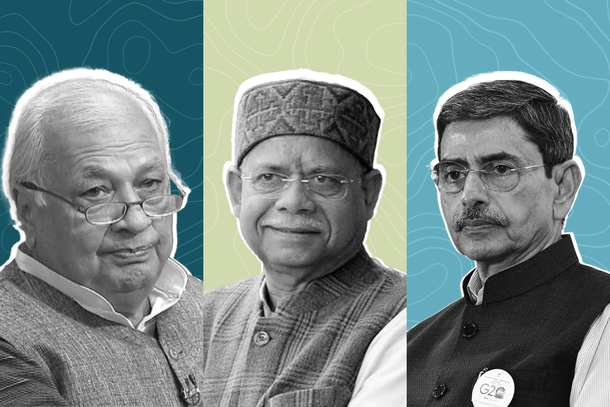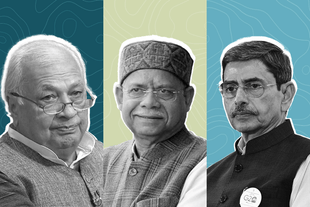Politics
Modi Government Should Deploy Governors To Show The Mirror To States On Freebie Spree
S Rajesh
Dec 14, 2023, 05:30 PM | Updated 05:47 PM IST
Save & read from anywhere!
Bookmark stories for easy access on any device or the Swarajya app.


A number of opposition party ruled states recently moved the Supreme Court regarding delay by governors in granting assent to bills. They have alleged that the governors, acting on the behest of the centre, are adopting an obstructionist approach.
Take a look at Tamil Nadu for instance. The court recently asked the governor and the Chief Minister to meet over a cup of tea to resolve the impasse over pending bills after it was informed that ten bills, which were re-passed by the State Assembly, were referred by him to the President.
While the court has stated that governors should act on the bills as soon as possible, i.e., grant assent, return to the state assembly for reconsideration or refer to the president, this entire episode brings forth the question as of whether the governors could be asked by the Modi government to engage in constructive criticism of the states' policies, in a manner in which say the Bharatiya Janata Party (BJP) cannot afford to do so due political compulsions.
After all many of them are old party-people, whose political careers have almost come to an end.
The foremost thing that comes to mind is the issue of freebies and pensions, which are causing financial trouble for state governments both in the near term as well as the long term.
Freebies, undeniably, are popular among a section of voters, and the BJP, due to political reasons (need to win elections) cannot go beyond a point to criticise them. Even it has to increase handouts or come up with welfare schemes that may not be fiscally very prudent, to take on the opposition.
What would happen if a governor speaks about it, you may ask? At the very minimum, it would do the following:
One, the issue would get covered by the media.
Two, the BJP does not have to take the blame for 'opposing freebies' and by extension 'opposing welfare' of the people.
Three, more people become conscious of the issue.
And four, the state governments are likely to respond, which in turn would lead to a debate on the said question.
Some examples could be the Tamil Nadu Governor raising the issue of how increased electricity tariffs are affecting industries in the state and explaining why free electricity to houses and free bus travel for women could be reasons for the state's inability to avoid raising tariffs for industries.
In a state like Himachal Pradesh, the focus could be on how the Old Pension Scheme (OPS) could deteriorate the state's finances.
The Kerala Governor could speak about why the centre imposes a net borrowing ceiling on states, i.e., to preserve their fiscal health. The state government had recently moved the Supreme Court contending that it is a violation of the federal structure and the state's power to manage its finances.
While some might question if governors could speak on these issues, given the role prescribed by the constitution, the answer is that if a governor is free to criticise the 'dravidian model', he could as well criticise a freebie or subsidy.
Governors anyway do not have much to do unless there is a crisis like issues with government formation, or the state is under president's rule.
Acting on bills sent by the state legislature, presence on formal occasions, presiding over convocations of universities and meeting delegations are what their day-to-day routines mostly look like.
However, as stated earlier, the position they hold gives them a unique reach, even in states where the BJP's ability to shape the narrative is not very strong.
Speaking on the negative impact of freebies, the Old Pension Scheme or certain kinds of subsidies, in a way that helps the centre and the country's finances, could thus be a 'productive use' of governors.
S Rajesh is Staff Writer at Swarajya. He tweets @rajesh_srn.





